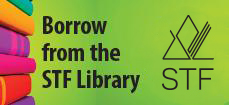Create various visual, oral, written, and multimedia (including digital) texts that explore identity (e.g., Telling One's Life Story), social responsibility (e.g., Examining the Influence of Popular Culture), and efficacy (e.g., Creating Turning Points).
| (a) |
Create a variety of texts (i.e., oral presentations, written and other compositions) that represent experiences, ideas, and information about identity, social responsibility, and efficacy with clarity, correctness, and variety. |
| (b) |
Create speeches, writing, and other representations that feature the following qualities: Message Content or Ideas (Meaning): Focuses on main ideas and information; provides relevant details, examples, and explanations; is accurate, complete, and uses own words; shows some individuality or originality in literary texts; contains ideas and images that create an impact. Organization and Coherence (Form): Introduces the topic and purpose; provides some context; sticks to the topic; is easy to follow with related ideas grouped together and sequenced logically; uses appropriate connecting words; creates a logical ending; includes appropriate and required text features (e.g., titles, headings, diagrams, illustrations), correctly constructed. Language Conventions (Style and Language Choices): Uses clear purpose and language; shows a good sense of audience; contains description and variety in diction; contains a variety of sentence lengths and varied sentence beginnings; demonstrates the use of several different conjunctions; formulates complete, simple, compound, and complex sentences correctly (avoiding run-ons and fragments); applies the conventions of oral and written language, including correct spelling, correct punctuation (including use of colon, dash, and hyphen), uses legible cursive handwriting and clear representations which are visually accurate, legible, and neatly presented. |
| (c) |
Represent, articulate, and explain personal viewpoints clearly. |
| (d) |
Summarize main ideas discussed and conclusions drawn, encourage others to contribute, disagree courteously/sensitively, answer others' questions clearly and politely, and add to others' ideas |
| (e) |
Participate in group inquiry related to the themes and issues being studied in English language arts: |












This document will assist individuals and communities to engage in meaningful discussions and actions to respond to the experiences, perspectives and needs of students and families who are gender and/or sexually diverse (GSD).
Content includes:
- Gender and Sexual Diversity
- First Nations and Métis Ways of Knowing
- Assumptions, Privilege and Oppression
- Comprehensive School Community Health (CSCH)
- CSCH Approach to Creating Inclusive Schools





